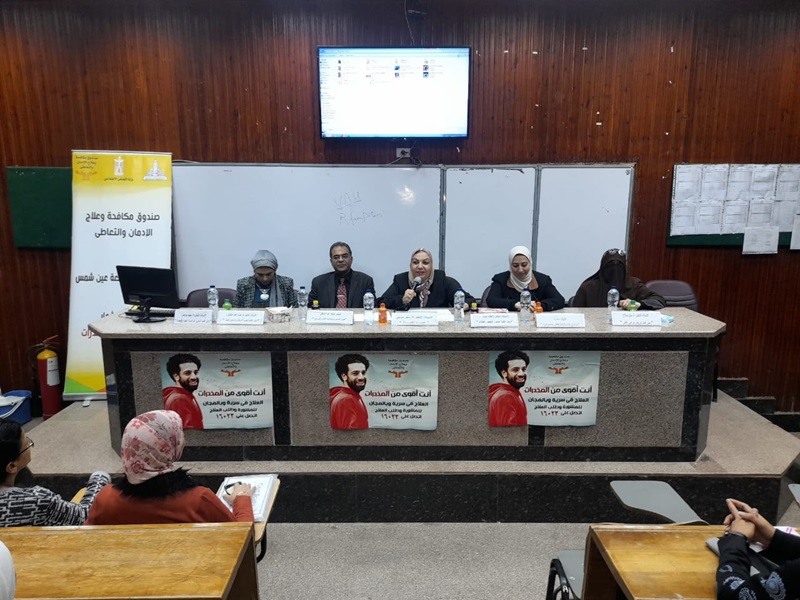The activities of the “Addiction...Risks and Solutions” symposium at the Faculty of Nursing
In continuation of the series of awareness seminars organized by the education sector and students at Ain Shams University through the General Administration of Youth Welfare, in cooperation with the Council of Ministers’ Addiction Control and Treatment Fund, under the title “Addiction... Risks and Solutions,” a symposium was held on Tuesday at the Faculty of Nursing under the patronage of Prof. Mohamed Diaa Zein El-Abedeen, President of Ain Shams University, Prof. Sahar Musa Suleiman, Dean of the Faculty, Prof. Hala Muhammad Hussein, Vice Dean of the Faculty for Education and Student Affairs, in the presence of Dr. Rasha Mohamed Rashad, researcher at the Fund for Combating Addiction and Abuse Treatment at the Presidency of the Council of Ministers, Dr. Ahmed Abdel Shafi, toxicology officer at the Forensic Medicine Authority, and a group of faculty members and students at the Faculty.
Prof. Sahar Mousa, Dean of the Faculty, during the symposium, stressed the importance of raising awareness and creating awareness among young people, and spreading awareness and education methods about the harms and dangers of drugs, addiction and abuse, and the necessity of developing personal and social skills, expressing her happiness with the cooperation between the university and the Fund in this regard.
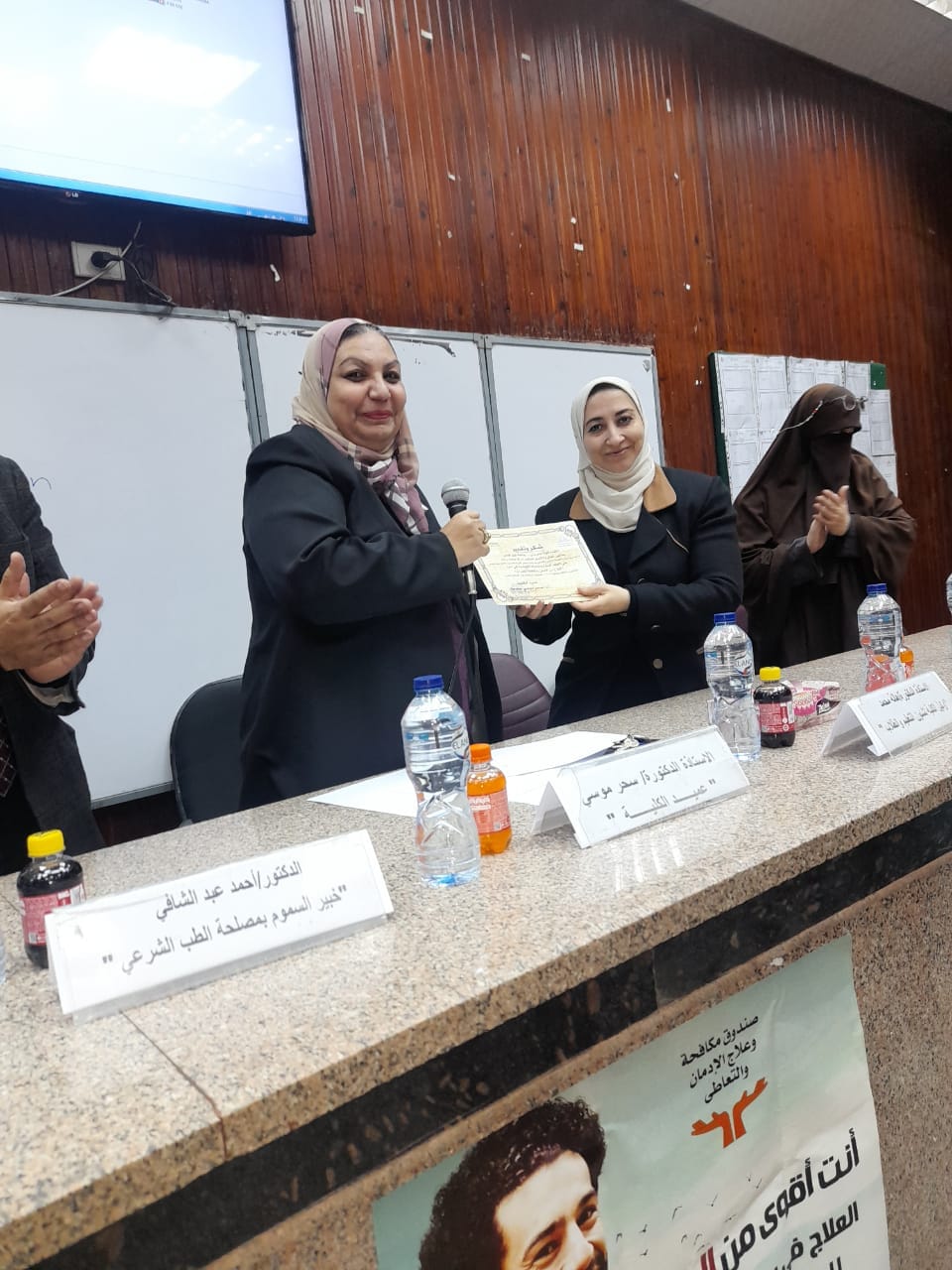 |
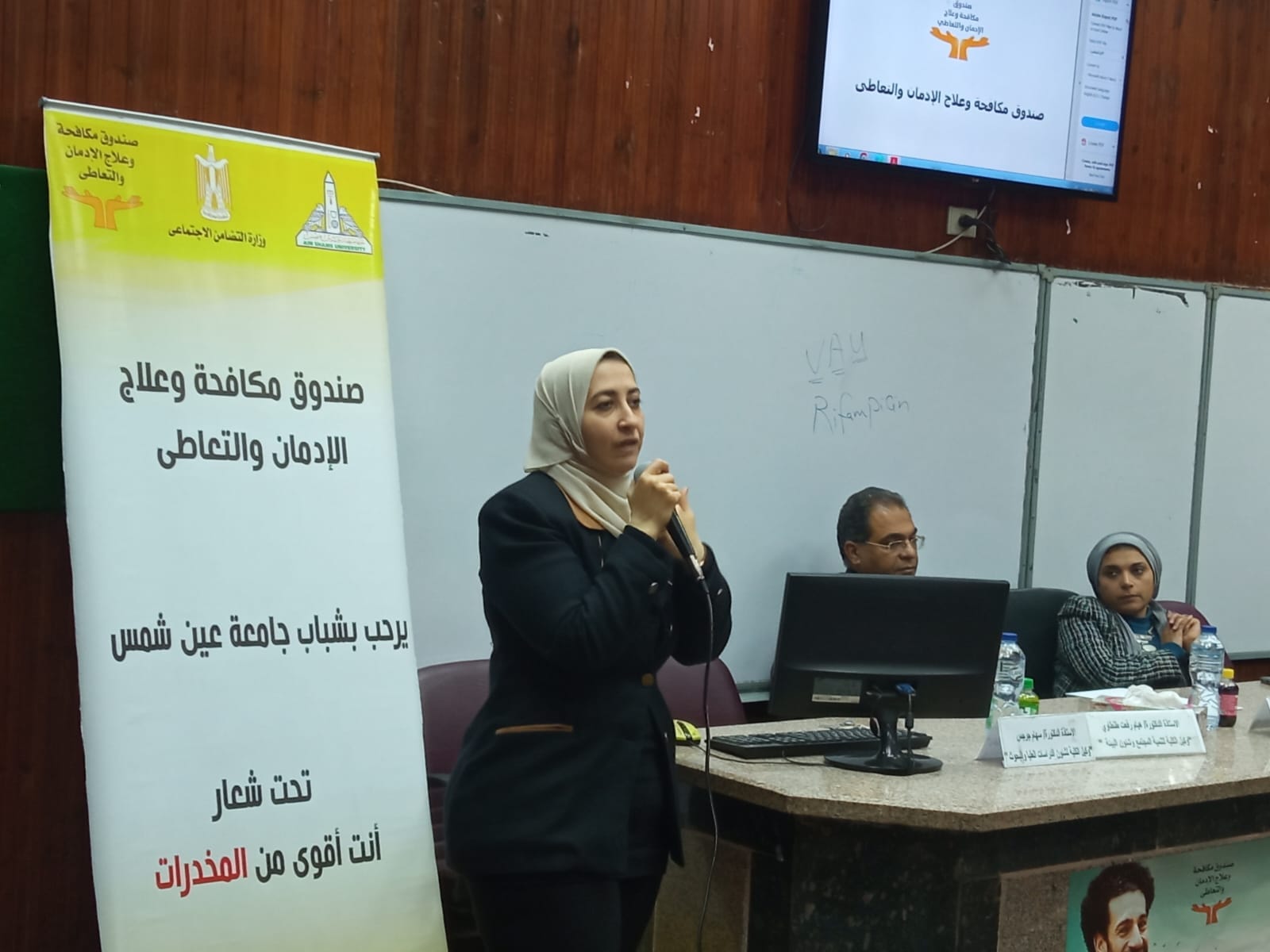 |
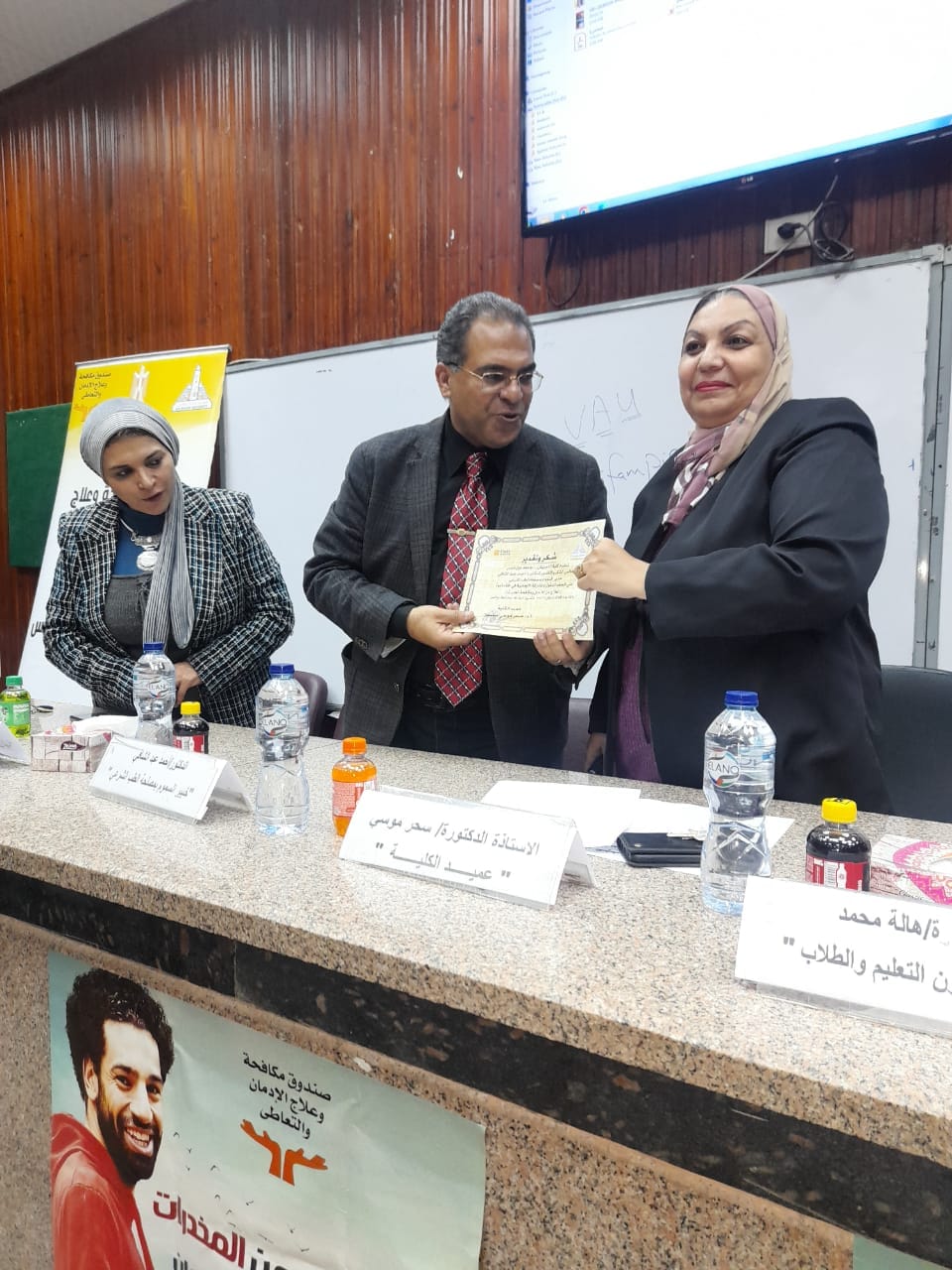 |
||
Dr. Rasha Rashad confirmed that the various initiatives aim to reach all segments of society to raise awareness of the dangers of this problem, which is one of the most important goals of the Fund for Combating and Treating Addiction and Abuse.
She explained that among the most important factors of addiction is a defect in family communication and the lack of dialogue between family members, noting that smoking is the first gateway to entering the world of addiction and drug use.
She emphasized that the family is the first line of defense to protect its children from drugs, and that family dialogue between children and parents, listening to them carefully and encouraging them to express and express their opinion helps in understanding the nature of the problem at its beginning.
In addition to encouraging children to practice hobbies, artistic, sports, and cultural activities and urging them to participate in society also has a significant impact on their protection and awareness of methods of primary prevention and early detection.
She also touched on the role of peer pressure in getting involved in drug abuse and that students should not allow anyone in their surroundings to persuade them or pressure them in all forms, which may lead them to experiment with taking some drugs of unknown origin.
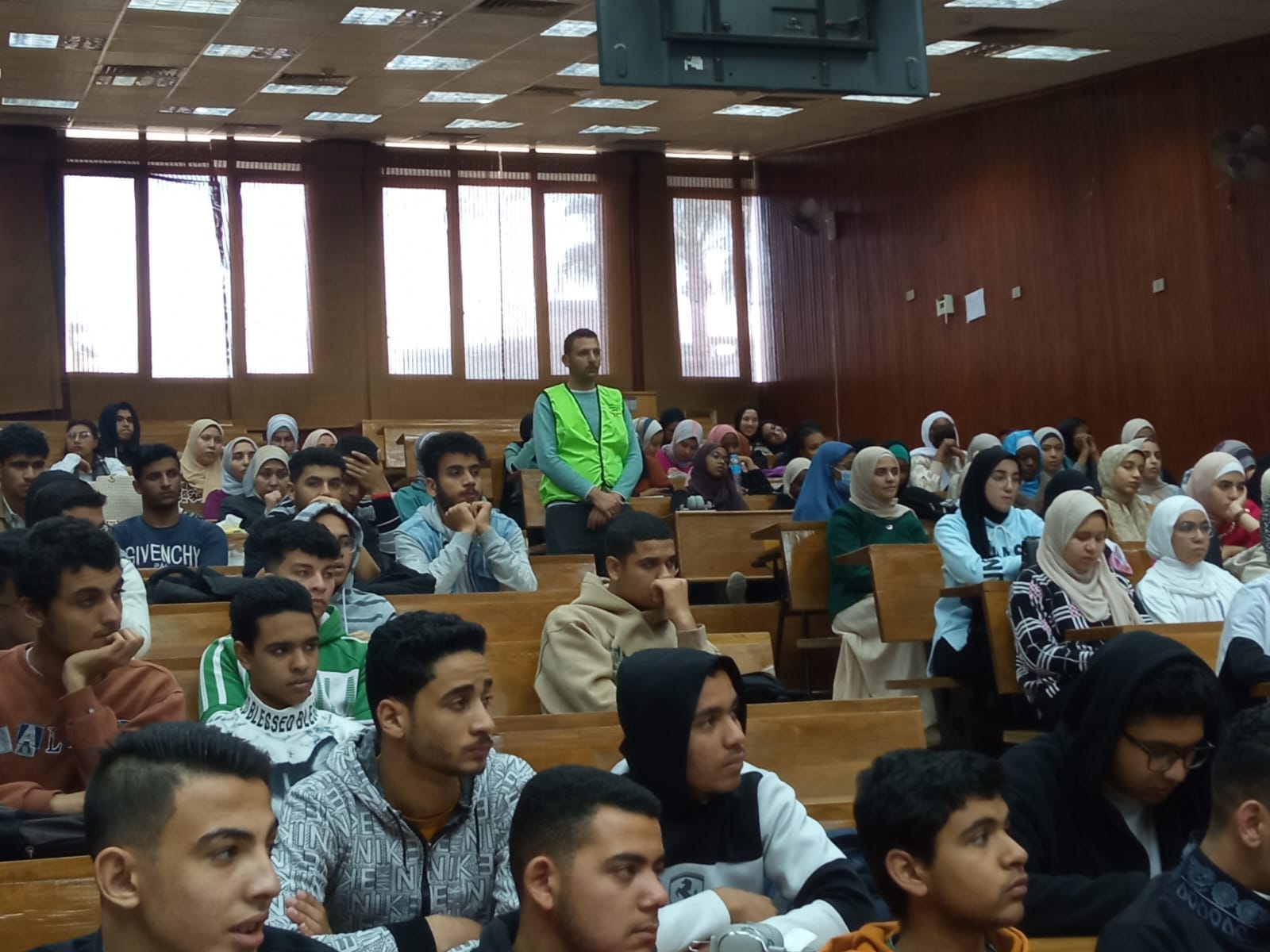 |
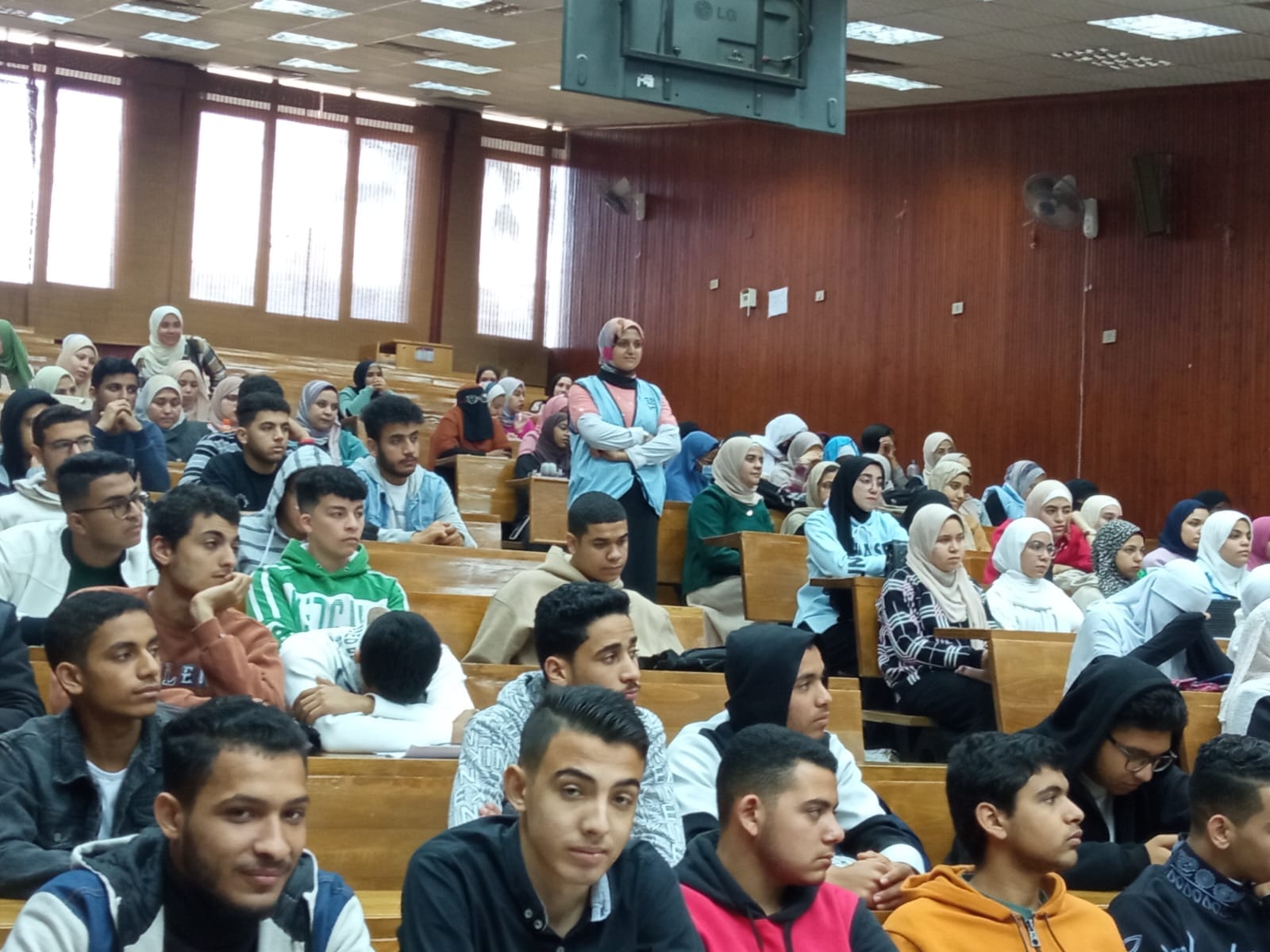 |
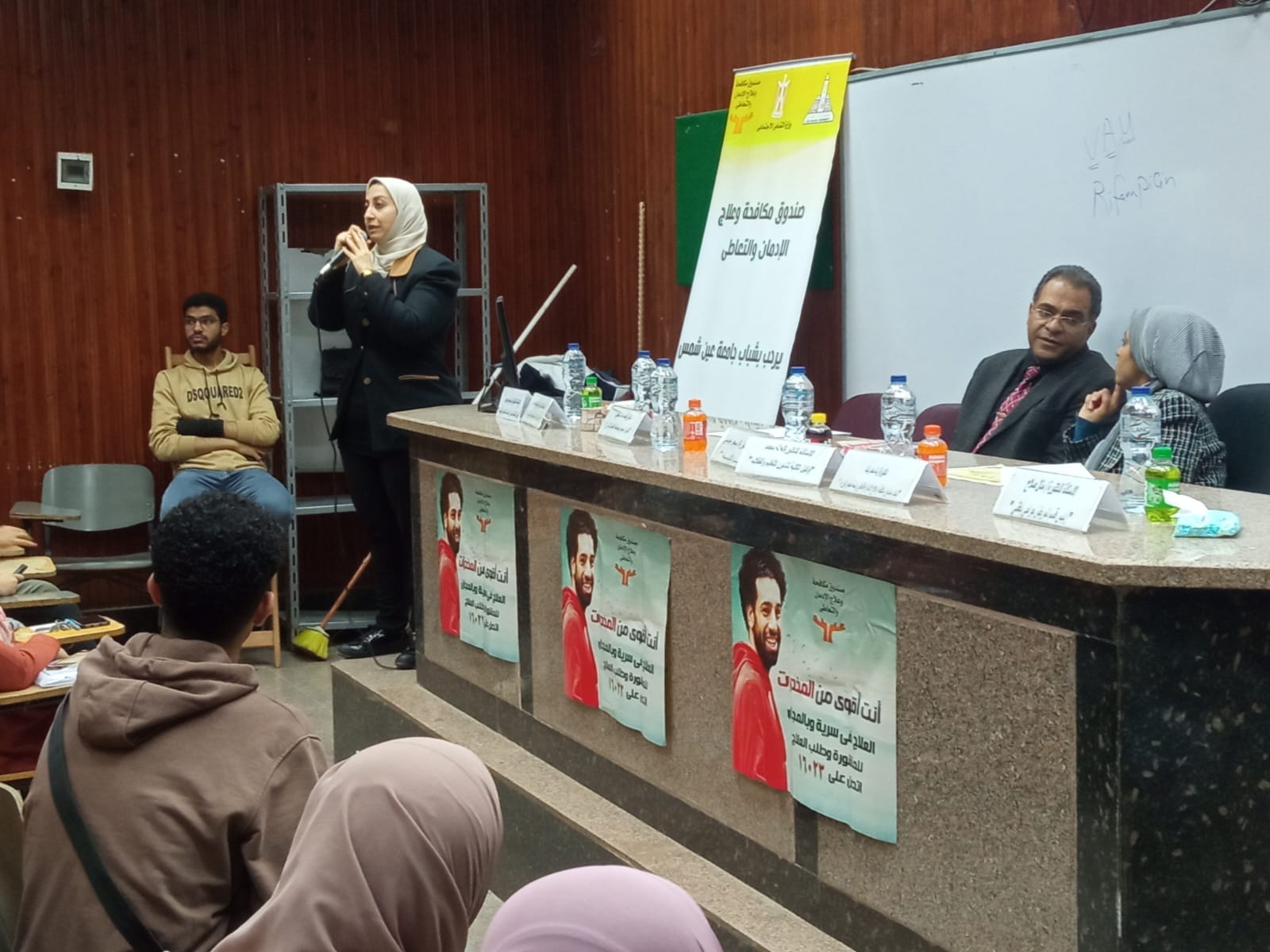 |
||
Dr. Rasha Rashad, highlighted the role of the hotline 16032 in helping with early detection of abuse and how to prevent it, and social rehabilitation confidentially and free of charge, praising the role of Ain Shams University in conducting awareness campaigns for students within the framework of cooperation between the Fund for Combating and Treating Addiction and Abuse and the university.
Dr. Ahmed Abdel Shafi, toxicology officer at the Forensic Medicine Authority, said that addiction is considered one of the most important causes of most of the violent crimes witnessed by Egyptian society, as drugs affect the human central nervous system and destroy it after a short period.
As stated by Dr. Ahmed Abdel Shafi, the most dangerous types of drugs currently widespread among young people, the clear signs of an addict, their psychological, social, and economic damage and effects, the symptoms for the addict, the areas of addiction in the human brain, the misuse of drugs that lead to addiction, and the behavioral and psychological impact of drugs on the individual.
The symposium received a large turnout from students and great interaction from them, as the lecturers conducted a discussion session with the students to answer their questions at the conclusion of the meeting.


.svg)

